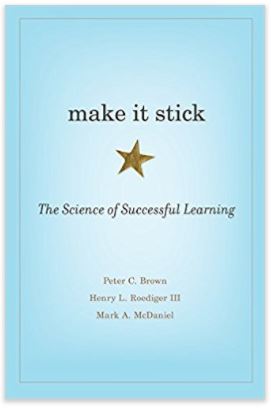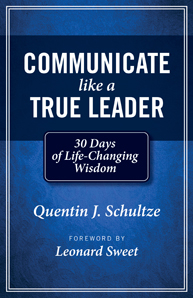Make it Stick: The Science of Successful Learning— by Peter C. Brown, Henry L Roediger III, and Mark A. McDaniel
Some of the key points and learning strategies they mention in the preface:
- The most effective learning strategies are not intuitive
- Spaced repetition of key ideas and the interleaving of different but related topics are two excellent teaching/learning strategies
Some the key points and learning strategies they mention in the first chapter:
- When they talk about learning they mean acquiring knowledge and skills and having them readily available from memory so you can make sense of future problems and opportunities.
- There are some immutable aspects of learning that we can probably all agree on:
- To be useful, learning requires memory, so what we’ve learned is till there later when we need it.
- We need to keep learning and remembering all our lives.
- Learning is an acquired skill and most effective strategies are counterintuitive
- Learning is deeper and more durable when it’s effortful
- We are poor judges of when we are learning well and when we’re not
- Rereading text and massed practice (i.e., cramming) of a skill or new knowledge are by far the preferred study strategies of learners of all stripes, but they”re also among the least productive. Rereading and cramming give rise to feeling of fluency that are taken to be signs of mastery, but for true mastery or durability these strategies are largely a waste of time.
- Retrieval practice — recalling facts or concepts or events from memory — is a more effective learning strategy than reviewing by rereading
- Flashcards are a simple example
- Retrieval strengthens the memory and interrupts forgetting
- A single simple quiz after reading a text or hearing a lecture produces better learning and remembering that rereading the text of reviewing lecture notes.
- Periodic practice arrest forgetting, strengthens retrieval routes, and is essential for hanging onto the knowledge you want to gain.
- Space out practice and interleave the practice of 2 or more subjects, retrieval is harder and feels less productive, but the effort produces longer lasting learning and enables more versatile application of it in later settings.
- Trying to solve a problem before being taught the solution leads to better learning, even when errors are made in the attempt.
- Learning styles are not supported by the empirical research.
- When you’re adept at extracting the underlying principles or “rules” that differentiate types of problems, you’re more successful at picking the right solutions in unfamiliar situations. This skill is better acquired through interleaved and varied practice than massed practice.
- In virtually all areas of learning, you build better mastery when you use testing as a tool to identify and bring up your areas of weakness.
- All learning requires a foundation of prior knowledge.
If you practice elaboration, there’s no known limit to how much you can learn. Elaboration is the process of giving new material meaning by expressing it in your own words and connecting it with what you already know. The more you can explain about the way your new learning relates to your prior knowledge, the stronger your grasp of the new learning will be, and the more connections you create that will help you remember it later.***
“When learning is hard, you’re doing important work.”
“Making mistakes and correcting them builds the bridges to advanced learning.”
Learning is stronger when it matters.^^^
- One of the most striking research findings is the power of active retrieval — testing — to strengthen memory, and the more effortful the retrieval, the stronger the benefit.
. - The act of retrieving learning from memory has 2 profound benefits:
- It tells you what you know and don’t know, and therefore where to focus further study
- Recalling what you have learned causes your brain to re-consolidate the memory
.
- To learn better and remember longer, [use]:
- various forms of retrieval practice, such as low-stakes quizzing and self-testing
- spacing out practice
- interleaving the practice of different but related topics or skills
- trying to solve a problem before being taught the solution
- and distilling the underlying principles or rules that differentiate types of problems
One of the best habits a learner can instill in herself is regular self-quizzing to recalibrate her understanding of what she does and does not know.
Brown, P. C., Roediger III, H. L., & McDaniel, M. A. (2014).
Make It Stick: The Science of Successful Learning.
Cambridge, MA: The Belknap Press of Harvard University Press.
Retrieved from https://www.amazon.com/Make-Stick-Science-Successful-Learning/dp/0674729013
*** This quote reminds me of what turned Quin Schultze’ learning around. With Quin’s permission, the following excerpt is from Quentin Schultze’s solid book, Communicate like a True Leader (pages 35 & 36)
During the beginning of my sophomore year, I started reviewing each day’s class notes after classes were over. I soon realized how little I recalled even of that day’s lectures and discussions. It dawned on me that normal note-taking merely gave me the impression that I was learning. I implemented a strategy that revolutionized my learning, launched me successfully into graduate school, helped me become a solid teacher, equipped me to be a productive researcher-writer, and made it possible for me to be an engaging speaker.
I not only reviewed my notes daily. I rewrote them from scratch within a couple of hours of each class meeting. I used my actual course notes as prompts to recall more of the lecture and to help me organize my own reactions to the material. My notes expanded. My retention swelled.
My revised notes became a kind of journal of my dialogue with the instructor and the readings. I integrated into my revised course notes my daily reading notes, reworking them into language that was meaningful to me and preparing to ask the instructor at the next class anything that I was uncertain about. From then on I earned nearly straight A’s with far less cramming for exams.
Moreover, I had begun journaling about my learning — one of the most important communication skills. I became a real learner by discovering how to pay attention to others and myself.
In a broad sense, I learned how to listen.
^^^ This quote explains why it is so important to answer the first question a learner asks when approaching a new lesson/topic/lecture/etc.:
- Why is this topic relevant?
i.e., why is this topic important and worthy of my time to learn it?










